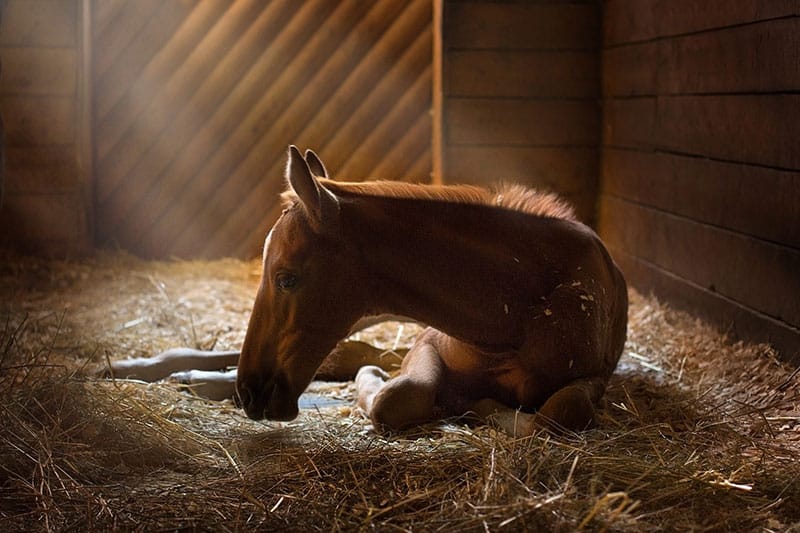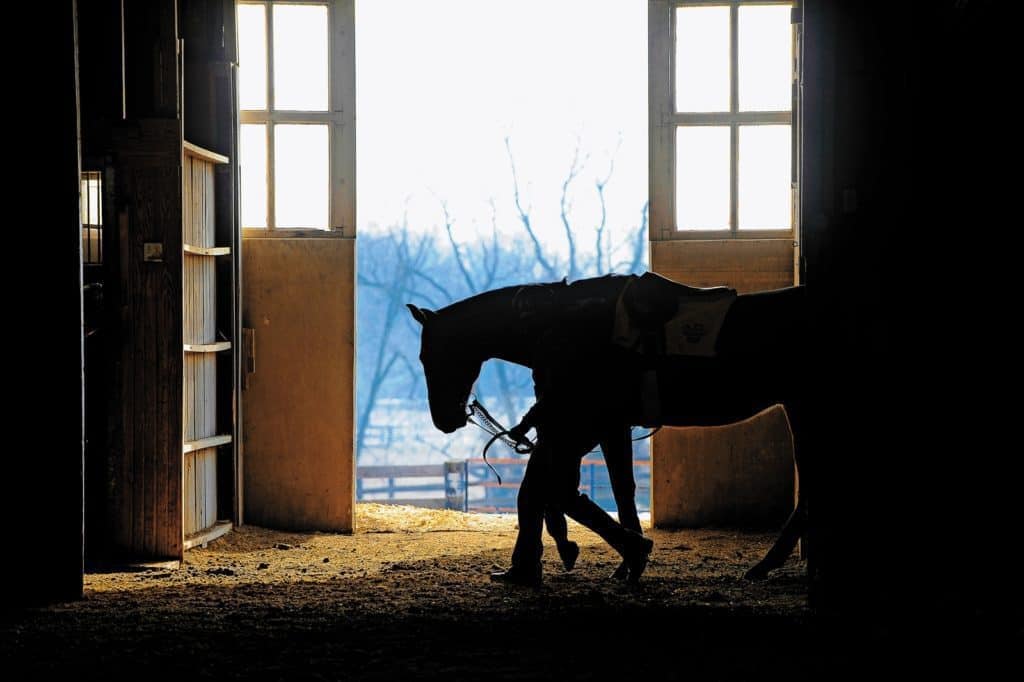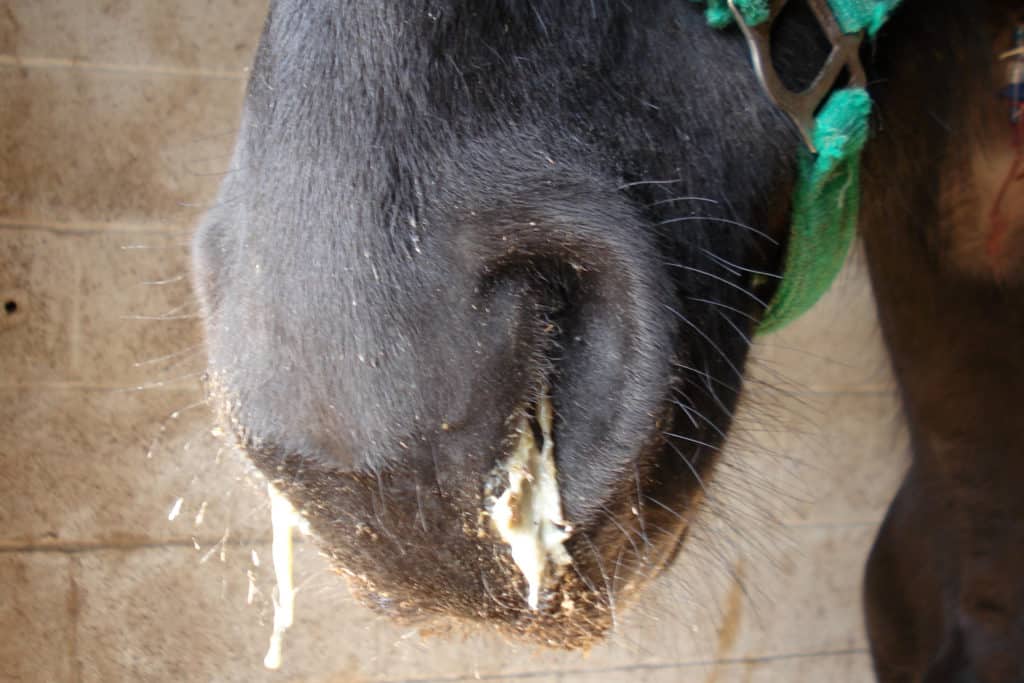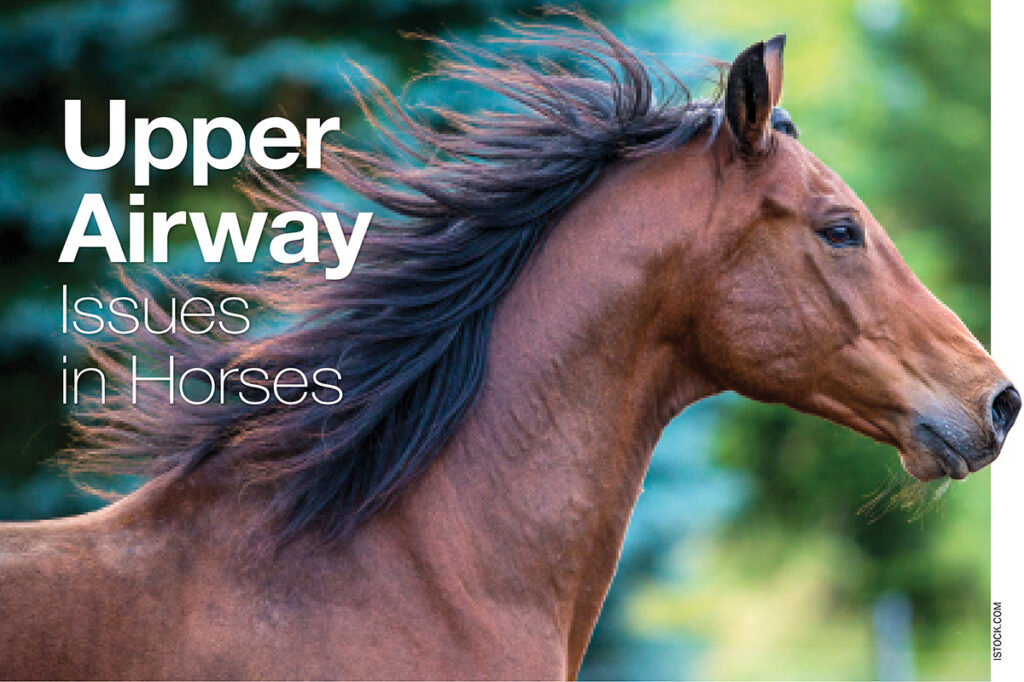
Poor Performance in Horses: Lameness, Behavior, or Neither?
A wide range of conditions can cause poor performance, but many cases circle back to lameness with a behavioral component.

A wide range of conditions can cause poor performance, but many cases circle back to lameness with a behavioral component.

Keep dust to a minimum in arenas, barns, and paddocks for both aesthetic and health reasons.

Follow the steps in this visual guide to help your horse breathe easier.

Dr. Lutz Goehring weighs in on what researchers have learned about equine herpesvirus-1, how it spreads, and how to prevent infection.

Learn about recent research on the causes of EIPH, how it affects horses and their performance, and furosemide use in equine athletes.

A veterinarian answers common questions about this respiratory disease.

Foal pneumonia can be quite severe, but with aggressive management foals can recover and go on to lead normal lives.

This inflammation of the lungs most commonly affects foals, but that doesn’t mean your mature horse isn’t at risk.

Butterfly Network and The Horse: Your Guide to Equine Health Care have partnered for equine pneumonia education Sept. 4-9.

Horses might need additional risk-based vaccines in the fall months, depending on location and activities.

Determining exactly which vaccines a horse needs can be confusing. Here are some basic do’s and don’ts to make sure you’re providing the disease protection your horse needs.

What vaccines should horses have on board prior to show season?

Eliminate the feces of R.-equi-infected foals on the farm, which reduces the bacteria the earthworms consume.

This common and highly contagious respiratory disease affects horses worldwide.

Veterinary intervention can make itchy horses more comfortable and keep allergies under control. Sponsored by Kinetic Vet.

Learn about common upper airway problems in horses and how to address them in this visual guide.
Stay on top of the most recent Horse Health news with
"*" indicates required fields